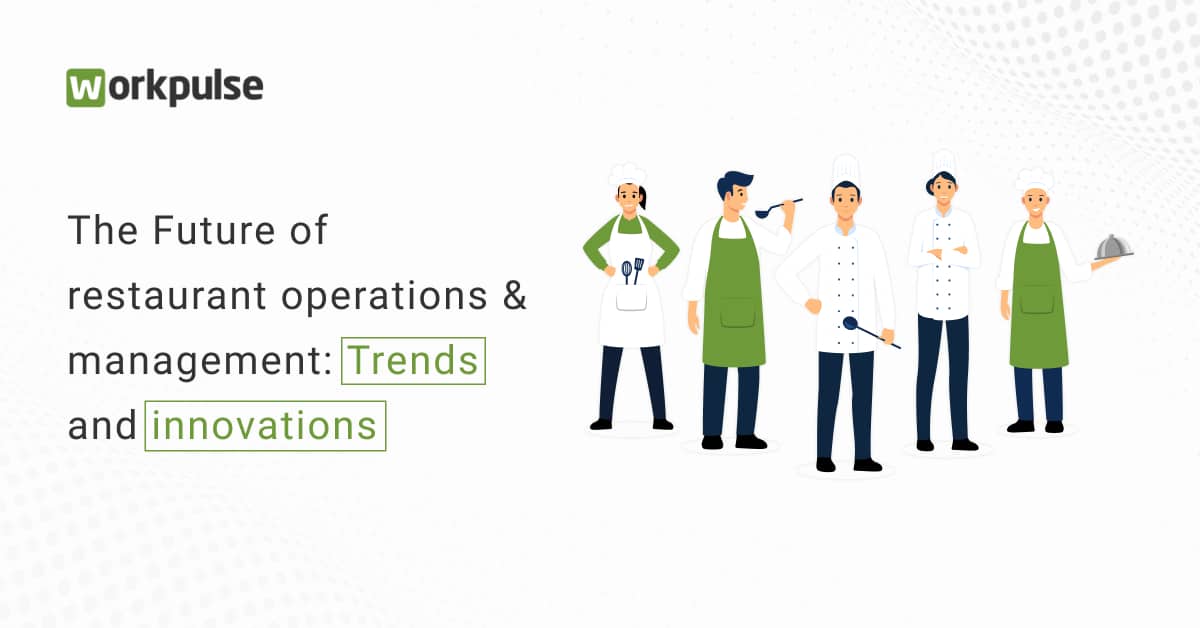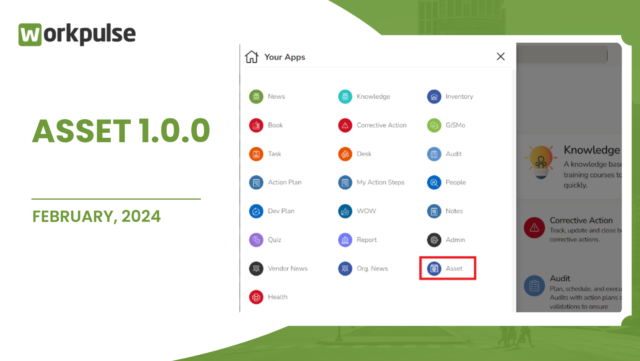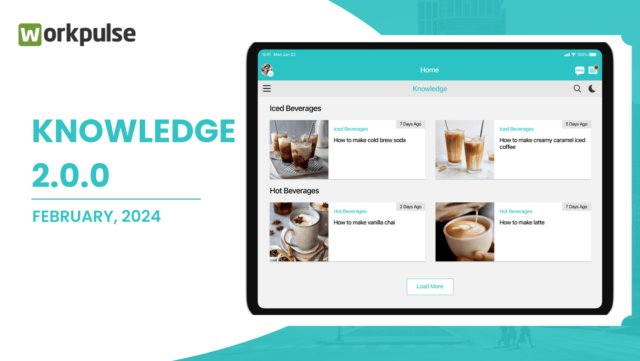The restaurant industry is no stranger to change, and as the landscape of operations and management continues to evolve, staying ahead of the curve becomes crucial for success. In this blog, we’ll explore the importance of keeping up with these changes, the impact of technology and innovation on the industry, and provide an overview of the key trends and innovations that are shaping the future.
The importance of keeping up and the impact of technology and innovation
In today’s fast-paced world, restaurants must adapt to stay relevant. Keeping up with industry trends and evolving customer expectations is vital to meet their demands. By staying informed and proactive, restaurant owners and managers can position their establishments for long-term success.
Technology has revolutionized the restaurant industry, transforming the way operations are managed and customer experiences are delivered. From online ordering platforms and mobile apps to self-service kiosks and automation, technology has become a driving force behind improved efficiency, increased revenue, and enhanced customer satisfaction.
The top trends and innovations in the restaurant operations and management industry
As the restaurant industry continues to evolve, staying on top of emerging trends is crucial for long-term success. Here we explore the top 10 trends shaping the future of restaurant operations and management. These trends align with the needs and objectives of modern establishments, including efficient task management, streamlined audits, enhanced guest experience, and more.
#1: Mobile Ordering and Contactless Payments
The rise of mobile ordering and contactless payments allows customers to conveniently place orders and make payments using their smartphones. This trend not only enhances the guest experience but also improves operational efficiency by reducing order errors and wait times. Restaurants are integrating mobile ordering apps, self-service kiosks, and digital payment solutions to cater to the growing demand for contactless transactions.
#2: Data-driven Decision Making
Restaurants are leveraging data analytics to make informed decisions and drive operational efficiency. By analyzing customer preferences, sales trends, and inventory data, restaurants can optimize their menu offerings, reduce waste, and improve profitability. Advanced analytics tools provide insights into customer behavior, enabling personalized marketing campaigns and targeted promotions.
#3: Streamlined Task Management
Efficient task management is essential for smooth operations. Restaurants are adopting digital platforms that enable streamlined task assignments, progress tracking, and collaboration among team members. Task management software allows managers to create, assign, and monitor tasks in real-time, ensuring accountability and timely completion. This trend enhances productivity, reduces operational errors, and ensures tasks are completed on time.
#4: Automating Audits and Compliance
Automating audits and compliance processes saves time and minimizes errors. By utilizing digital tools, restaurants can schedule audits, track compliance status, and generate comprehensive reports. Auditing software provides standardized checklists, automated reminders, and real-time analytics to monitor compliance with health and safety regulations. This trend ensures consistency, reduces manual effort, and helps maintain brand standards.
#5: Enhanced Guest Experience
Providing exceptional guest experiences remains a top priority. Restaurants are investing in technologies such as personalized marketing campaigns, loyalty programs, and guest feedback management systems. These tools allow for targeted engagement, customization, and prompt issue resolution. Guest experience platforms enable restaurants to collect feedback, analyze sentiments, and respond to customer inquiries in real time, ensuring a personalized and memorable dining experience.
#6: Online Ordering and Delivery
With the increasing demand for off-premise dining, online ordering and delivery services have become a necessity. Restaurants are partnering with third-party platforms or implementing their own online ordering systems to reach a wider customer base and maximize revenue. Integrated delivery management systems streamline the order fulfillment process, optimize delivery routes, and provide real-time tracking to enhance the customer experience.
#7: Sustainable Practices
Sustainability is gaining momentum in the restaurant industry. Consumers are gravitating towards eco-friendly establishments that prioritize waste reduction, energy conservation, and sourcing local ingredients. Restaurants are adopting sustainable practices to attract environmentally conscious customers and contribute to a greener future. This includes initiatives like implementing composting and recycling programs, using eco-friendly packaging and sourcing ingredients from local and sustainable suppliers.
#8: Mobile-based Staff Communication
Effective communication among staff members is crucial for seamless operations. Restaurants are leveraging mobile apps and messaging platforms to facilitate real-time communication, task assignments, and updates. Mobile-based staff communication platforms streamline internal communication, ensure consistent information flow, and enable quick response times. This trend improves coordination, reduces errors, and enhances overall teamwork.
#9: Inventory Optimization
Managing inventory efficiently is vital for cost control and minimizing waste. Restaurants are using inventory management systems to track stock levels, automate reordering processes, and streamline supply chain operations. These systems provide real-time visibility into inventory levels, enable accurate demand forecasting, and optimize stock rotation. This trend ensures optimal inventory levels, reduces food spoilage, and avoids stockouts, leading to improved profitability.
#10: Integration of Internet of Things (IoT)
The Internet of Things (IoT) is revolutionizing the restaurant industry. IoT devices such as smart thermostats, connected kitchen appliances, and inventory sensors enable real-time monitoring, remote control, and predictive maintenance. Restaurants are leveraging IoT technologies to improve energy efficiency, equipment performance, and operational visibility. Smart devices provide automated temperature monitoring, equipment maintenance alerts, and data-driven insights to optimize operations and reduce costs.
How Workpulse rOS helps stay abreast with restaurant operation & management trends
As the landscape of restaurant operations and management continues to evolve, it becomes increasingly important for businesses to adapt and embrace innovative solutions. That’s where Workpulse comes in. With its comprehensive suite of modules, Workpulse empowers restaurants to embrace the latest trends and innovations, enabling them to streamline their operations, enhance guest satisfaction, and achieve excellence in every aspect of their business.
Workpulse understands the unique challenges faced by restaurants and has developed a robust set of tools to address these challenges. From maintaining brand standards and ensuring food safety compliance to managing audits, recovering and retaining guests, and optimizing facilities and equipment maintenance, Workpulse’s four modules provide a comprehensive solution for all aspects of restaurant operations and management.
By leveraging the power of Workpulse’s modules, restaurants can not only keep up with the rapidly evolving industry but also gain a competitive edge. These modules are designed to help restaurants stay abreast of industry innovations, implement best practices, and drive growth and profitability. In the following sections, we will delve into each module in detail, exploring how they contribute to the future of restaurant operations and management. So let’s embark on this exciting journey and discover how Workpulse can transform your restaurant into a beacon of success in the ever-evolving landscape of the industry
#1: Brand Standards & Food Safety Compliance
The Brand Standards & Food Safety Compliance module helps restaurants maintain consistent brand standards and comply with food safety regulations. It provides digital checklists and inspections for daily tasks, allowing restaurants to customize and streamline their compliance processes. This module enables restaurants to set up audits based on their specific requirements, track audit progress, and centralize training and certifications. By leveraging this module, restaurants can ensure that they consistently meet brand standards, adhere to food safety protocols, and stay compliant with regulations.
#2: Restaurant Audit Management
The Restaurant Audit Management module simplifies and automates the audit process for restaurants. It allows restaurants to schedule audits based on predefined frequencies and criteria, ensuring regular evaluations of their operations. This module provides task management functionalities, enabling efficient assignment and tracking of audit-related tasks. Additionally, it offers a centralized document repository for easy access to audit records and facilitates collaboration among team members. With this module, restaurants can proactively manage audits, identify areas for improvement, and maintain a high level of operational excellence.
#3: Guest Recovery & Retention
The Guest Recovery & Retention module focuses on enhancing the guest experience and fostering customer loyalty. It enables restaurants to collect and analyze guest feedback through various channels, including surveys and reviews. This module provides a platform for tracking and resolving guest complaints, allowing restaurants to address issues promptly and ensure guest satisfaction. Additionally, it supports the implementation of loyalty programs, enabling restaurants to reward and retain loyal customers. By utilizing performance analytics, restaurants can gain insights into guest preferences, identify trends, and continuously improve the guest experience.
#4: Facilities & Equipment Maintenance
The Facilities & Equipment Maintenance module helps restaurants effectively manage their facilities and equipment to ensure smooth operations. It provides a ticket management system for handling maintenance tasks, allowing restaurants to create, assign, and track tasks in real time. This module offers real-time updates on task statuses, enabling timely resolution of maintenance issues. Restaurants can also track expenses related to maintenance tasks, optimize resource allocation, and maintain equipment reliability. By efficiently managing facilities and equipment maintenance, restaurants can minimize downtime, reduce operational disruptions, and create a safe and comfortable environment for guests and staff.
Ace your restaurant operations with Workpulse rOS
By utilizing Workpulse and its modules, restaurants can embrace the latest innovations in the industry. The system’s user-friendly interface, automation features, and real-time insights enable restaurants to streamline operations, maintain compliance, enhance the guest experience, and optimize maintenance processes. Workpulse empowers restaurants to stay on top of industry trends and innovations, driving their success in the competitive landscape of restaurant operations and management. Schedule your demo and experience the power of Workpulse rOS.




